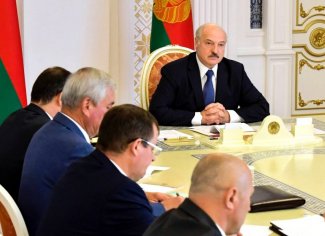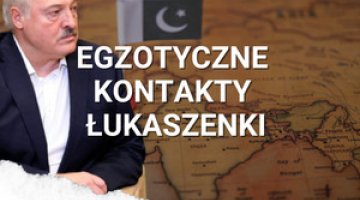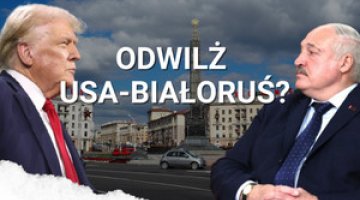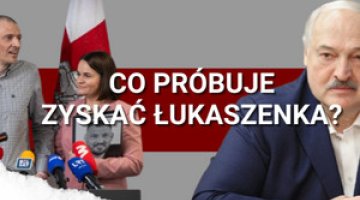Belarus: the government’s counteroffensive attempt

On 18–19 August, the intensity of protests was noticeably lower than during the weekend, though still significant. As on the previous days, residents of Minsk and Grodno were the most active. The first press conference of the Coordinating Council for the Transfer of Power, whose members include dozens of independent experts, opposition politicians, public activists and artists (including the Nobel Prize winner, Sviatlana Alexievich), was held yesterday. The council met for the first time today. Its main goal was to commence dialogue with the government on holding a presidential election once again.
The management of the protesting industrial plants have intensified their pressure on the workers, threatening them with dismissal and financial penalties for failure to comply, and many employees have backed down in the face of such threats. As a result, it has been impossible to sustain a comprehensive strike, i.e. total cessation of production, in any of the factories. The most significant protest is the one taking place at Belaruskali, a plant producing potassium fertilisers based in Soligorsk – the bulk of the company has ceased operation. For comparison, only around 20% of the crew of Minsk Tractor Works, MTZ, are currently protesting, while they were perceived as one of the leading worker protest groups just a few days ago.
The government’s propaganda offensive is well underway. As part of this, rallies in support of Alyaksandr Lukashenka, in which several thousand people who participated were bussed in from Gomel and Mogilev. The demonstrators carried national flags and also Russian neo-imperial symbols. Further pro-government demonstrations are planned today with the intention of counterbalancing the regime’s opponents. OMON, whose forces have not been seen on the streets for several days, launched several actions in Minsk this morning – demonstrators gathering at various places were dispersed, with some of them being detained. It seems that the government has dealt with dissenting elements within the state media. At present, official information is being broadcast in an undisturbed manner, which stems from support given by Russian specialists, as unconfirmed reports claim.
Lukashenka held another meeting of the Security Council on 18 August. Referring to the creation of the coordination council, he branded this as an attempt “to usurp power”. He warned its members of legal consequences and accused them of intending to break off the alliance with Russia, and to seek membership of the EU and NATO. He also reiterated that the military threat posed by NATO member states had increased. Today, he responded with criticism of Western mediation proposals, saying that the West “should take care of its own problems”.
Lukashenka is continuing intensive consultation with the Kremlin. The leaders of Belarus and Russia have had three telephone conversations in the last few days, during the last of which they discussed Vladimir Putin’s talks with Chancellor Angela Merkel and President Emmanuel Macron concerning Belarus. The Kremlin’s spokesman, Dmitri Peskov, has ruled out Russian military support for Lukashenka.
Commentary
- The regime has launched its counter-offensive. Since the intensity of the protests has subsided, it is trying to recapture the initiative and regain control over industry and the propaganda apparatus, which are critical for the system’s stability. The government may succeed in intimidating workers, who are afraid of losing their income, and thus reduce the scale of protests to an extent that will make it possible to bring the industrial sector back to full production capacity.
- Lukashenka is continuing to expound his narrative of an external threat, fomenting this by accusing his opponents of radical anti-Russian sentiments, and thereby hoping that this will deter moderate members of the general public from supporting them. At the same time, Lukashenka is still clearly rejecting any Western offers of mediation or support in the dialogue with the public, arguing that these initiatives are a “covert” attempt at destabilising the country.
- Lukashenka’s increasingly open enmity towards the West is correlated with a clear reconciliation of the stances taken by Belarus and Russia. At present, representatives of these two countries are condemning in unison any attempts at external interference with the situation in Belarus. Lukashenka is making no attempt to hide the fact that he has asked Russia for support. Moscow is restricting itself to further political support, which is a manifestation of the desire to maintain its exclusive hold on Belarus. The price for such support will be the resumption of negotiations on enhanced Russian-Belarusian integration as part of the Union State.
- It is difficult to predict, on the basis of the coordinating council’s conference, how effective this body will be in coordinating the protests, or whether it will merely become another internally divided discussion forum. It is worth noting that Pavel Latushka has joined the council. Latushka served as the Minister of Culture and the Belarusian ambassador to Poland, France and Spain. He is the first representative of the Belarusian nomenklatura to have clearly taken the protesters’ side. It cannot be ruled out that this is a demonstration of presidential ambitions on the part of a skilful official, who has lately been marginalised inside the government camp.





